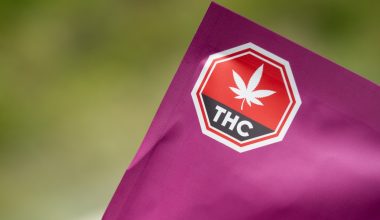
President Trump recently affirmed that his administration is “looking” at federally reclassifying cannabis and that it would “make a determination over the next few weeks.”
The President’s remarks are his first since making a social media post last fall endorsing plans to recategorize the cannabis plant to a Schedule III substance under the federal Controlled Substances Act. Doing so would complete an administrative process initiated by the Biden administration in 2023, which reviewed the plant’s safety and efficacy and recommended it be reclassified from Schedule I to Schedule III. (That process has been at an impasse following an order in January from now-retired DEA Administrative Law Judge John Mulrooney.)
Following the President’s latest comments, some in the media have mischaracterized the potential effects of cannabis reclassification. To provide better clarity to this issue, NORML is providing the following primer.
What is the Controlled Substances Act?
Passed by Congress in 1970, the Controlled Substances Act classifies certain controlled substances in distinct regulatory categories based on their accepted (or lack of) medical utility and abuse potential. Substances with no accepted medical utility and a high potential for abuse are classified as Schedule I controlled substances and are strictly prohibited under federal law. Substances with accepted medical utility, traditionally defined as FDA drug approval, are typically classified as Schedule II – V substances based on their varying degrees of abuse potential. (Medically accepted substances with high abuse potential are classified as Schedule II substances, while those with the lowest abuse potential are Schedule V.) Not all psychoactive substances and/or medications are classified in the CSA, with some notable exceptions being alcohol, tobacco, and Epidiolex (FDA-approved, plant derived CBD).
Have there been prior administrative efforts to reclassify cannabis?
Yes. This current effort is the fifth time that an administrative petition to remove cannabis from Schedule I had been filed, but the first time that the White House had ever initiated such an effort.
Will reclassifying cannabis from Schedule I to Schedule III provide state governments with the ability to legally regulate cannabis free from federal interference?
President Trump is on record stating that he “supports states’ rights to pass marijuana laws.” However, reclassifying cannabis from Schedule I to Schedule III does not provide state governments with the authority to establish marijuana regulations that are inconsistent with those established by the federal government.
That’s because substances classified in the CSA are subject to uniform federal regulations. State governments are generally not permitted to deviate from these federal regulations. (For example, individual states cannot legally decide to permit over-the-counter sales of cocaine – a Schedule II drug – or ketamine – a Schedule III drug – without running afoul of federal law.)
State governments do possess significant powers to regulate (or prohibit) the use and sale of alcohol and tobacco products as they see fit, which is why state-specific regulations governing the use and sale of these products often differs significantly from state to state. That is because these two substances are not scheduled in the CSA. To provide states governments with similar autonomy to make state-specific decisions regarding the regulation of cannabis, the plant must be descheduled, not rescheduled.
Absent cannabis descheduling, those who produce, dispense, possess, or use marijuana in compliance with state laws could still face federal prosecution for violating federal drug laws.
Will rescheduling make cannabis legal as an FDA-approved medicine? Will rescheduling make cannabis available only by prescription?
No. Rescheduling would be an acknowledgment from the federal government that cannabis possesses “currently accepted medical use in treatment in the United States.” This recognition is distinct from it being formally endorsed by the US Food and Drug Administration, which requires an altogether different approval process. As a result, rescheduling would not likely mandate the sale of cannabis in pharmacies, which is required for FDA-approved scheduled substances.
Will rescheduling amend federal penalties?
Yes and no. Federal statues specific to the possession and/or trafficking of marijuana per se would not be automatically changed by rescheduling. That’s because these statutes, and the penalties provided in these statutes, are not directly tied to cannabis’ scheduling. Amending these statutory penalties would require an act of Congress.
By contrast, there are many federal laws that penalize the broader possession of Schedule I substances. These include federal prohibitions on one’s ability to possess a Schedule I substance and legally purchase a firearm or reside in subsidized housing. Moving cannabis to Schedule III would exclude those who possess it from these and other similar federal restrictions that are contingent upon cannabis’ Schedule I status.
Would rescheduling make it easier for scientists to conduct clinical cannabis research?
Probably not. Scientists can and do conduct clinical trials involving marijuana right now. (Some states, like California, have established state-sponsored programs dedicated to conducting clinical cannabis research.) However, the approval process for these trials is unduly onerous. But rescheduling cannabis will likely do little to streamline this process. That’s because many of the impediments in place – such as requiring clinical protocols to be approved by the US Attorney General and requiring cannabis products to be sourced from federally licensed, not stated-licensed vendors – are not specific to other Schedule I substances. They are only specific to marijuana, and these marijuana-specific restrictions are codified in various federal statutes and regulations. Congress would explicitly need to amend these statutes to loosen these restrictions.
Would rescheduling force cannabis prohibition states to immediately legalize it?
No. However, some states have so-called ‘trigger laws’ on their books that require regulators to re-evaluate cannabis’ legal status following a change in its federal scheduling.
Notably, federally descheduling cannabis would also not compel prohibition states to immediately change their laws, though it is possible, even likely, that many might eventually do so.
Would rescheduling modify tax policies for state-licensed cannabis businesses?
Yes. Reclassifying cannabis to Schedule III would permit state-licensed businesses, for the first time, to take traditional tax deductions because they will no longer be providing services specific to a Schedule I federally prohibited substance. Further, it is possible that some banks and financial institutions may be more willing to partner with these businesses post-rescheduling. However, further statutory changes would still be required by Congress (such as the passage of SAFER Banking legislation) to codify these relationships and it is likely that many larger institutions will not provide services to the cannabis industry as long as cannabis remains scheduled.
Will reclassification mandate health insurance companies to reimburse patients for their medical cannabis-related expenses?
In some medical cannabis states, patients are already eligible for reimbursements related to the use of medical marijuana in certain circumstances (such as recovering from a workplace-related injury). In other states, courts have ruled that patients are explicitly ineligible because cannabis remains federally prohibited. It remains unclear whether rescheduling would provide any further clarity to either patients or their health insurance providers with respect to this matter.
For additional resources on cannabis rescheduling, see:
NORML Fact Sheet: A Brief History of Cannabis Rescheduling Petitions in the United States
NORML Memorandum: Federal Marijuana Prohibition Can Only Be Repealed by Descheduling
NORML op-ed: Feds must deschedule, not reschedule, marijuana to resolve state/federal conflicts
NORML’s public comments to DEA in the matter of cannabis’ federal scheduling
Related
Medical Disclaimer:
The information provided in these blog posts is intended for general informational and educational purposes only. It is not a substitute for professional medical advice, diagnosis, or treatment. Always seek the advice of your physician or other qualified healthcare provider with any questions you may have regarding a medical condition. The use of any information provided in these blog posts is solely at your own risk. The authors and the website do not recommend or endorse any specific products, treatments, or procedures mentioned. Reliance on any information in these blog posts is solely at your own discretion.






